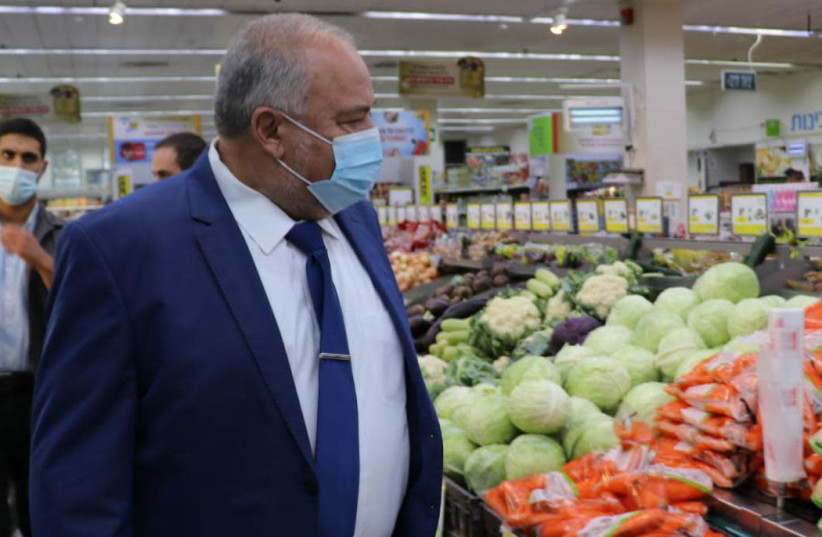In the struggle against Israel’s high cost of living, the government has landed the latest blow: Finance Minister Avigdor Liberman has issued measures added to a program that was announced by Prime Minister Naftali Bennett in February. The measures will tackle the agricultural industry, increase compensation granted to low-wage workers, assist small businesses in light of Omicron and increase food market competition.
How much will Israelis save per month?
“As we promised, we continue to act in favor of increasing the free income of the citizens of Israel and reducing expenses,” said Liberman. “The agriculture reform that is underway today will drastically reduce the prices of fruits and vegetables, and will reduce the cost to citizens. This, while providing a wide support package for farmers. We haven’t forgotten about our business owners either, and continue to help businesses affected by the coronavirus and stand by them during their crisis.”
The agricultural reform has been approved in the state budget for 2022, and will immediately cancel tariffs on a variety of fruits and vegetables such as avocados, garlic, peas, beans, figs, pineapple, berries, mushrooms and more. The remaining tariffs on fresh, frozen and preserved fruit and vegetables will be gradually reduced over five years. According to the Finance Ministry, the total savings to the Israeli consumer is expected to be about 820 shekels per year per household.
Committed "to saving the agriculture of Israel"
In turn, farmers will receive financial aid from the government, receiving grants based on the acreage they possess. They will also receive grants for purchasing “innovative equipment and machines” and for collaborating with start-ups, according to the ministry. The government shifting focus to directly aiding farmers could prove to be a critical shot in the arm to the agricultural industry.
“The entire issue of opening up agriculture to imports and making sure that Israel’s agriculture isn’t terribly harmed is super important, and the right way to go about that is to directly subsidize,” said Avi Weiss, professor of economics at Bar-Ilan University and president of the Taub Center.

“Right now what happens is that we all pay higher prices in order to be able to protect the local producers. It’s much more efficient and much cheaper to directly subsidize those who are harmed rather than the entire population,” Weiss added.
Additionally, the plan will double the previously announced negative income tax bonus for eligible workers to 40%, grant an integrated business subsidy of up to NIS 60 million for small businesses damaged by the Omicron wave of the coronavirus, and take steps to reduce monopolization in the food market.
“This reform is committed to saving the agriculture of Israel, whose productivity hasn’t increased in 22 years,” said Agriculture Minister Oded Forer. He mentioned that the plan will also enact safeguards for the Gaza Strip, the Arava, the Galilee and the Golan Heights.
“We have an obligation to reduce prices to Israeli citizens who need to take out a mortgage to buy fruit in the summer.”
